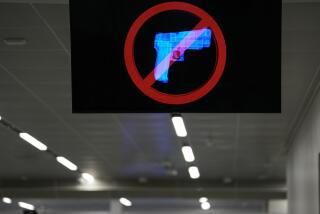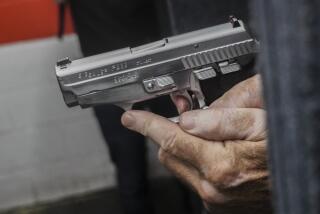Supreme Court rejects curbs on eyewitness testimony at trials
- Share via
Reporting from Washington — The Supreme Court refused to put new legal limits on the use of questionable eyewitness testimony at trials, ruling Wednesday that juries must weigh the evidence and decide what is true.
The 8-1 decision came as a disappointment to some criminal law experts who say false identifications by eyewitnesses are a leading cause of wrongful convictions.
Justice Ruth Bader Ginsburg acknowledged the problem, but disagreed that the right solution was to have judges consider the reliability of all eyewitness testimony prior to trials. That would be a major change in American criminal law — and not a good one, she said. It would mean everyday trials would be delayed indefinitely while lawyers and the judge fought over whether an eyewitness was reliable, capable and unbiased.
“In our system of justice, the jury, not the judge, ordinarily determines the trustworthiness of evidence,” she said.
The decision affirms the conviction of a repeat criminal in New Hampshire, Barion Perry, who was arrested in an apartment parking lot late at night. He was carrying two car stereos. A woman on the third floor had spotted a “tall black man” looking into cars, and from a balcony she pointed to him when an officer arrived. She could not identify his face, however, when shown photos later.
Perry said her eyewitness identification was unreliable and should be kept out of his trial. The judge refused, and Perry was convicted.
In the past, the high court has said an eyewitness should be excluded from a trial if the police play a role in arranging a questionable identification. For example, if the police arrange a lineup and include only one suspect wearing the distinctive clothes that were spotted at the crime scene, that identification should be excluded, Ginsburg said.
“Where there is no improper police conduct,” however, the law leaves it to the prosecutor, the defense lawyer and the jury to decide what testimony is reliable, she said.
Justice Sonia Sotomayor dissented alone and said judges should decide whether an eyewitness’ identification was reliable.
More to Read
Sign up for Essential California
The most important California stories and recommendations in your inbox every morning.
You may occasionally receive promotional content from the Los Angeles Times.











